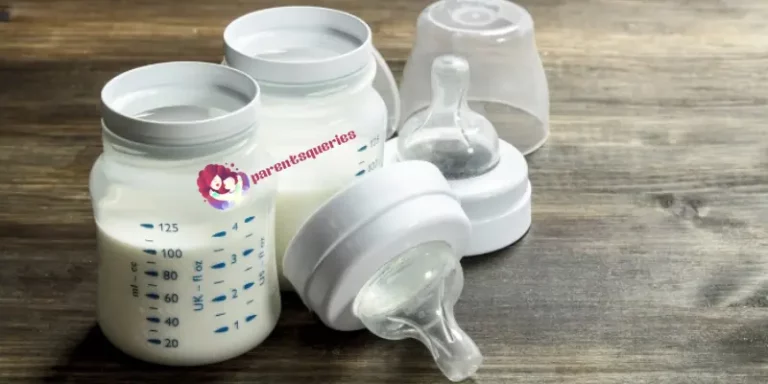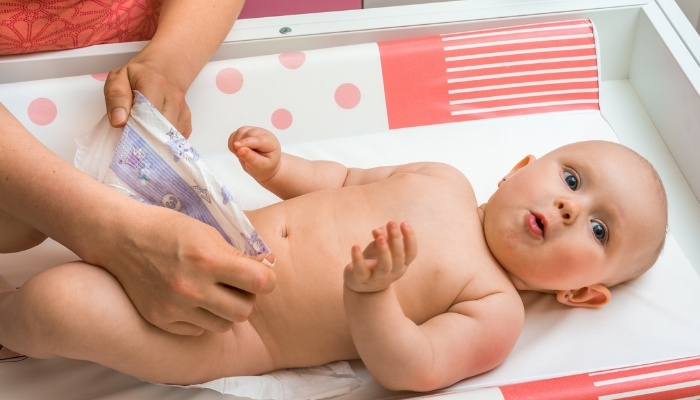Baby Swallowed Bathwater: What Are The Risks?
As a parent, I’m sure we’ve all experienced moments of fear and anxiety when it comes to our babies. One of these moments may come if your baby swallowed bathwater accidentally. While it is natural to be worried when this happens, what exactly are the risks?
In this article, we will take a closer look at the potential dangers that could arise from a baby swallowing bathwater and how you can protect your little one.
Is It OK if My Baby Swallows Bath Water?
After all, babies are known for putting everything in their mouths, including dirty toys and even their toes.
The good news is that swallowing a small amount of bath water is generally not harmful to most healthy babies.
Bathwater typically contains very low levels of harmful bacteria or chemicals that could cause harm to your baby if ingested.
Some pediatricians even recommend adding a small amount of baking soda or oatmeal to the bathwater to help soothe sensitive skin.
However, it’s important to keep in mind that excessive ingestion of bath water can lead to stomach upset and diarrhea in some babies.
When To Be Concerned
If your baby has swallowed bathwater, it’s natural to feel concerned. After all, you want the best for them and anything out of the ordinary can be scary.
The good news is that in most cases, swallowing a small amount of bathwater shouldn’t cause any harm.
However, there are certain situations when you should be more vigilant and seek medical attention.
One of the main things to consider is how much water your baby swallowed. If it was just a mouthful or two, they would probably be fine.
However, if they ingested a larger quantity – such as from drinking directly from the tap or submerging their head underwater – then you may need to take action.
This could include monitoring their behavior for signs of distress or contacting your pediatrician for further advice.
As a parent, you’ll likely have many concerns about your child’s safety and well-being, especially during pregnancy.
For example, if you’re wondering whether it’s safe to eat imitation crab while pregnant, read our article ‘Is It Safe To Eat Imitation Crab While Pregnant?‘ for more information.
However, this concern also extends to other aspects of baby care, such as cleaning and sterilizing baby bottles. I
If you’re wondering, “Can you wash baby bottles in the dishwasher?” and want to ensure your baby’s well-being, it’s essential to understand the potential risks associated with both scenarios.
Let’s explore the possible risks of a baby swallowing bathwater and how they relate to the proper cleaning of baby bottles in the dishwasher and Can You Put Baby Bottles In Dishwasher With Other Dishes?.
The Baby Swallowed Water Mixed With Soap
As parents, we always strive to keep our children safe and healthy. However, accidents can happen even when we are being careful.
One such incident that can occur is when a baby swallows water mixed with soap. While it may seem like a small issue, this situation can be quite alarming for parents and caregivers.
When a baby ingests water mixed with soap, it can cause various symptoms such as vomiting, diarrhea, or coughing.
The severity of the symptoms will depend on the amount of soap ingested and the age of the baby.
Younger babies are more vulnerable to complications because their immune systems are not fully developed yet and they may have trouble expelling foreign substances from their bodies.
If your baby has swallowed water mixed with soap, take immediate action to prevent any further harm.
The Baby Swallowed A Lot Of Bathwater
Bathtime is a favorite moment for babies and parents alike. It’s a time when they get to relax, play, and bond.
However, as enjoyable as it is, it’s also essential to be cautious because babies can accidentally swallow bathwater.
When this happens, a lot of questions arise about the possible health risks and complications.
Swallowing bathwater may not cause any harm at all. Most times, the amount of water swallowed is minimal and won’t cause any significant problems.
However, if your baby swallows large amounts of water at once or frequently ingests bathwater over an extended period, it could lead to some complications such as stomach pains or diarrhea.
There are other potential risks associated with swallowing bathwater such as exposure to harmful chemicals used in soaps or shampoos during bathing.
Dry Drowning
Dry drowning is a serious concern for parents of young children. While many parents are aware of the dangers of drowning in pools or other bodies of water, few know about dry drowning.
Dry drowning occurs when a small amount of water enters the lungs after submersion, causing breathing difficulties and even death.
Babies who swallow bathwater are at risk of dry drowning if water enters their lungs. The symptoms can be subtle and may not appear until hours after the incident.
Signs to watch out for include coughing, difficulty breathing or shortness of breath, chest pain, lethargy or extreme tiredness, and changes in behavior such as irritability or confusion.
It’s important to take swift action if you suspect your child has experienced dry drowning. Call 911 immediately and perform CPR until help arrives.
How To Prevent Your Baby From Swallowing Bathwater
Swallowing a small amount of water might not harm your baby, it’s essential to take precautionary measures to prevent any potential risks.
- Never leave your baby unattended during bath time. It only takes a few seconds for an accident to happen, so ensure you have all the necessary items within reach before starting the bath.
- Teach your child not to drink the bathwater by using verbal cues such as “no drinking” or “just play.”
- Consider putting some fun toys in the bathtub that will grab their attention and keep them occupied during the bathing process.
Conclusion: Baby swallowed bathwater
Baby swallowed bathwater is not an uncommon occurrence. It can be concerning for parents, however, as the water may contain bacteria or parasites that can cause illness in babies.
The best way to ensure your baby’s safety is to monitor them while they are in the bath, and never leave them unattended.
If your baby has swallowed bathwater, contact your pediatrician right away as they can assess the risks and provide reassurance. Check Switching From Similac To Enfamil: What You Need To Know






